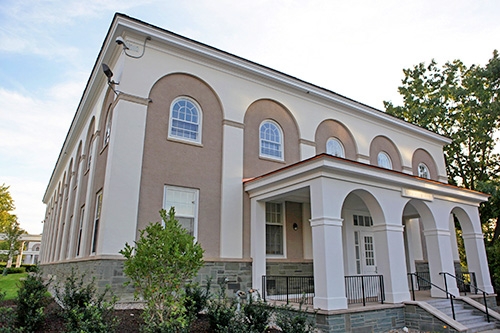(View these requirements in checklist form.)
Twelve courses in the department. Students must take PSC 111 or PSC 112, PSC 113, PSC 498-PSC 499 (a two-term senior project), and eight other courses. No more than two of these twelve courses may be internship courses (i.e., PSC 277, PSC 280T). Of the eight non-specified courses, at least two must be at the 300-level (beginning with the Class of 2021), and at least three of the four major areas of the discipline must be covered: Political Theory (courses normally numbered in the 230’s or 330’s), U.S. Politics (courses normally in the 260’s, 270’s, 280’s, 360’s, or 370’s), Comparative Politics (courses normally in the, 240’s or 340’s) and International Politics (courses normally in the 250’s or 350’s). Introductory courses may not be used to satisfy these distribution requirements.
Students must take two courses to fulfill the department’s research requirement and to prepare for the senior project. First, all students must take at least one “R” course. The presence of the “R” designation next to a course number in the registration materials (i.e., PSC 272R) denotes that the course will have a major research assignment as a central component of the course. Second, students must take an additional “R” course, or a seminar (PSC 339, PSC 349, PSC 359, PSC 369), or a research methods course (PSC 220, PSC 222, PSC 223, or students may request from the political science chair that a research methods course in another department qualify as a methods course for satisfying this requirement). Both research courses should be taken by the end of the student’s junior year as preparation for the senior project (PSC 498-PSC 499). Students are welcome and encouraged to take more than two research courses; these are simply minimum requirements. Normally, a GPA of 3.0 is required to gain admittance to a seminar.
